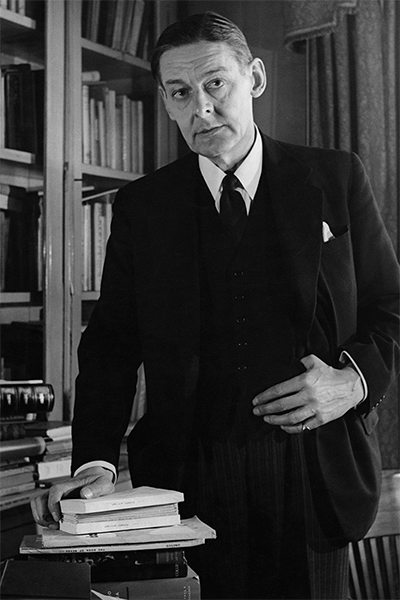
Thomas Stearns Eliot
| Born |
September 26, 1888
St. Louis, Missouri, U.S. |
| Died |
January 4, 1965 (Aged years)
London, England |
| Region | Northern Europe British |
| Language | English |
| Profession | Critic, Essayist, Playwright, Poet, Publisher |
| Education | Harvard University Merton College, Oxford |
| Period | Modernist |
| Movements | Modernism |
| Notable Works | The Love Song of J. Alfred Prufrock (1915), The Waste Land (1922), The Hollow Men (1925), Murder in the Cathedral (1935) |
| Awards | Nobel Prize in Literature Order of Merit Pulitzer Prize for Poetry |
| Politics | Conservative |
| Bio | T. S. Eliot was a major figure in 20th-century literature, known for his influential modernist poetry and critical essays. His work, characterized by its innovative use of language and exploration of themes such as disillusionment and fragmentation, had a profound impact on the literary world. Eliot’s conversion to Anglicanism and his conservative views also shaped his later works and public life. |